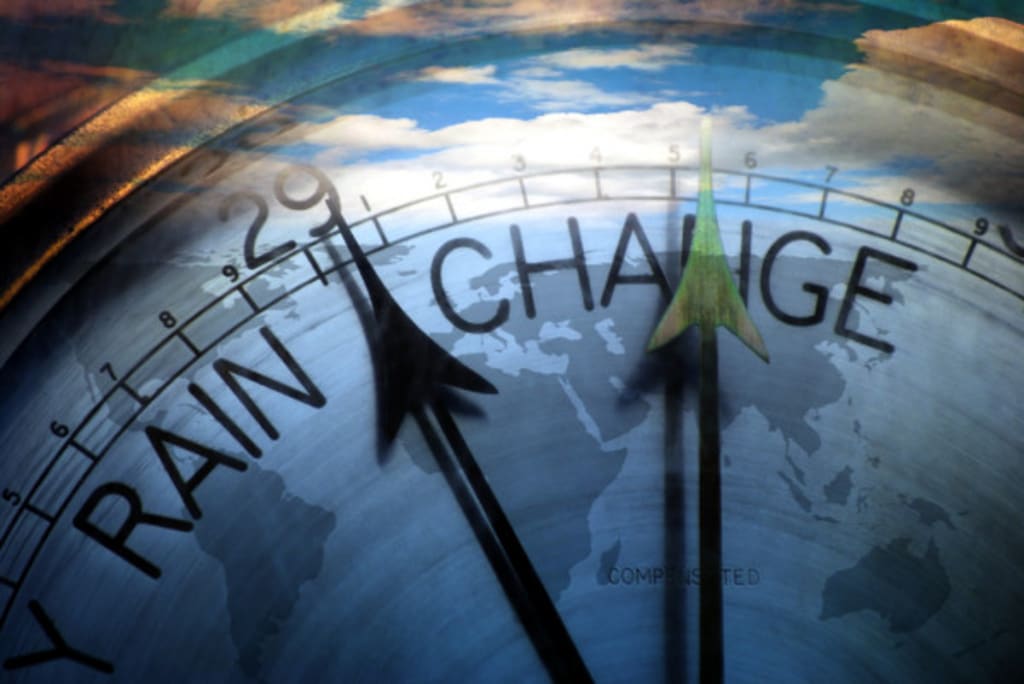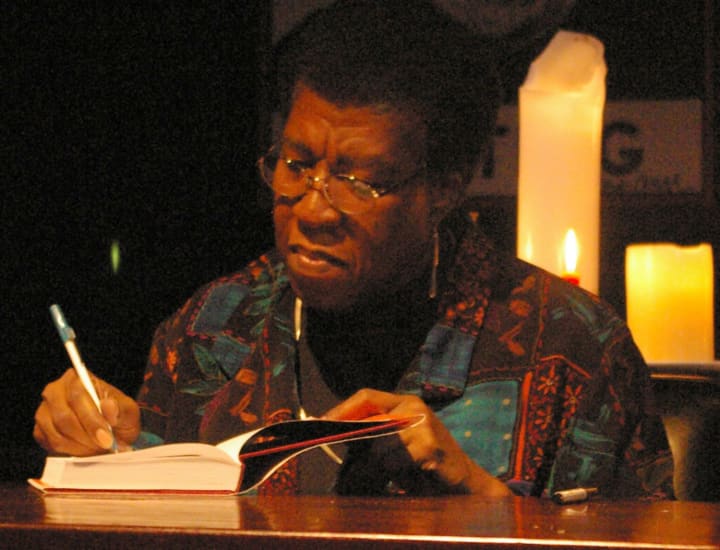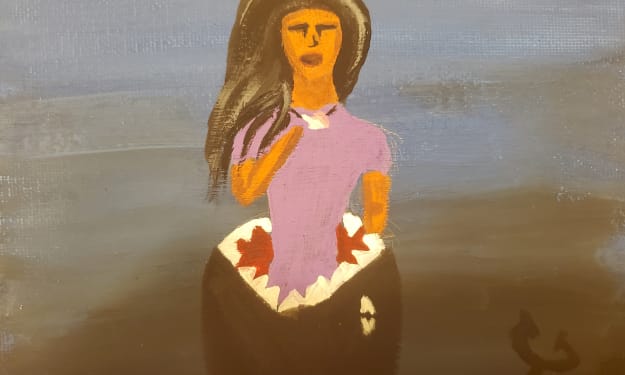The Eternal Relevance of Octavia Butler
Literature that gets me through an ever-changing world.

“So what do you think of that,” the professor’s eyes scanned the room before landing on me, “Arianna? What are your thoughts?”
We were discussing Kindred by Octavia Butler. In particular, we were going over the chapter in which the main character, Dana, is forced to make a difficult decision: allow herself to be sexually assaulted by an ancestor that she had time-traveled to protect, or kill him along with her chance of ever existing. I thought about the chapters I had read, the professor’s question, and then I did something I never thought I would do in any class. I cried. I attempted (and failed) to answer the question through my tears and embarrassment. There was only one thing I could think: To break me down in my own class, Miss Butler must be a hell of a writer. That was our first introduction, and despite the shame of a public breakdown, I have been obsessed ever since.
Maybe it’s because we have a lot in common. She grew up in a single parent household and experienced poverty. Because she was shy, she sought refuge in literature and the written word. And, all of the background information aside, there’s something about her slightly pessimistic (or realistic) spinning of humanity that just resonates with me, no matter how much I pretend to be an optimist.
I have always enjoyed science fiction and fantasy as a genre, but when I discovered Octavia Butler by way of tears, I felt that I had finally found the missing piece, something I hadn’t even known I was missing. Everything—history, class, race, sex—just connected and intersected into her futuristic writing. That is difficult to find even today, but she was a true pioneer, weaving these elements into sci-fi 50 years ago. If she had written Hunger Games—which I love as is, so no shade—it would’ve been written from Rue’s perspective based off principle alone. Or better yet, Cinna’s; the more complicated the predicament, the more likely Butler would be to write it.
She creates worlds and realities far removed from ours, but it’s easy to forget when you meet her characters. They are not somehow better because the technology is more advanced or because they have come into contact with other (alien) life. They are not better because they have superpowers. Frankly, they are not better.
Sure, some of them have the ability to time travel, or shape shift, or never die, but in each instance, Butler shows how these “abilities” are more crippling than anything. The power of gods layered with a healthy amount of human ego is never a good thing, as Butler shows us multiple times in her Patternist series. But even the characters who don’t abuse their power, such as Anyanwu in Wild Seed, don’t get lifted up as a saint or killed off as a martyr. As a matter of fact, when Anyanwu dies in Mind of My Mind (the second book in the series) she only gets a two-line obituary. Butler is not in the business of making heroes or villains. She writes real people and real dilemmas out of the most as-of-yet unrealized landscapes.
Besides her unusual incorporation of different, multi-faceted identities, Octavia Butler stands out in how she ends things. Unlike many popular sci-fi and fantasy series, Butler doesn’t seem to have a need for happy endings. For example, in Parable of the Sower, the main character Lauren is forced to wander the streets of the US with a group of strangers when her tight-knit, poorly-secured community is burned down. Society as we know it has collapsed so there is no government for her to lean on. Although she does eventually make her way with this group of people and the book ends on a relatively happy note, you can’t really call it a happy ending. Readers are left wondering. What’s to keep their new community from eventually being burned down? We get the sense that it will work for the time being, but who knows what will come? The future is always wayward, even more so in an anarchical society. Butler doesn’t promise greatness or everlasting peace to anyone, but she does give the characters (and therefore the readers) hope.
And maybe this is why I, a wannabe optimist, love and appreciate her so much. She writes societies and people that in the midst of reading seem unsalvageable, much like when we are in the midst of living life. Will a better, more advanced society lead to a better humanity? Short answer, no. For an in-depth answer, read Clay’s Ark. Will more money (and therefore power) for everyone lead to a better humanity? Nope, as she proved in the Patternist series. Maybe if we learn there are aliens, we will all exist as a peaceful, global community, right? Butler laughed in the face of that naivety when she wrote Dawn.
Each piece of literature that Butler blessed us with shows human nature in raw form, no matter what instance or scenario, no matter how the world turns and changes. And though it can sometimes be a bit depressing if I think on it too much, there’s always that glimmer just a bit out of reach that keeps me moving forward, through each book as well as each stage of life. Whether it’s Lilith’s pregnancy at the end of Dawn or Lauren’s newfound stability at the end of Parable of the Sower, Butler reminds us that there is always something to look forward to, no matter how dire things may seem. Even if I have to journey through the dirt with her first to get to it, I find this reminder comforting in the era of “new normal”.
But I’ve possibly made the biggest mistake, the one that Butler never seemed to: I have put her on a pedestal instead of writing her as a human. And because I can’t see her as anything outside of brilliant, here is an Octavia Butler synopsis, in her own words: “I'm comfortably asocial - a hermit in the middle of a large city, a pessimist if I'm not careful, a feminist, a black, a former Baptist, an oil-and-water combination of ambition, laziness, insecurity, certainty and drive.” Kindred spirits, indeed.

About the Creator
Arianna McGough
Hello there! I'm Arianna (obviously), and I write whatever comes to mind on any given day. Some of my favorite subjects are music, spirituality, and beauty. I'm excited to be part of this creative platform and for you to read my work!
Enjoyed the story? Support the Creator.
Subscribe for free to receive all their stories in your feed. You could also pledge your support or give them a one-off tip, letting them know you appreciate their work.






Comments
There are no comments for this story
Be the first to respond and start the conversation.